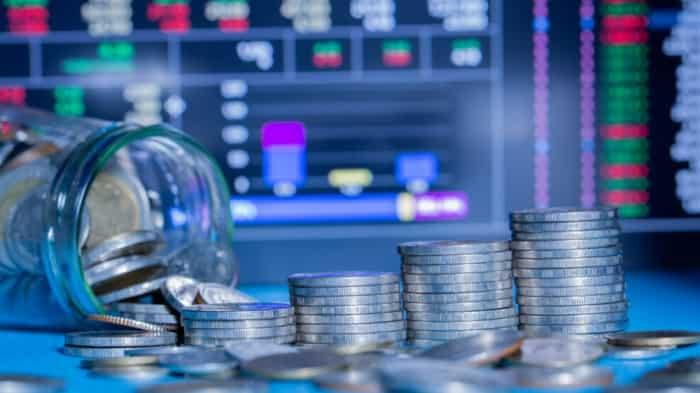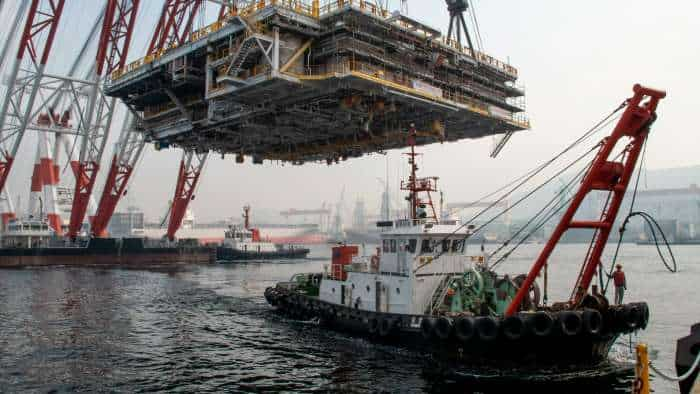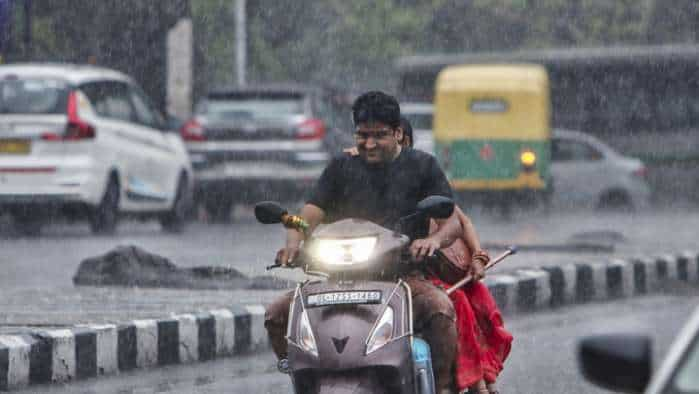World Environment Day 2024: Use of sustainable technology solutions towards positive environmental impact
World Environment Day 2024: As we celebrate the World Environment Day today, here are how companies are using sustainable technology solutions for a positive impact on environment.
)
World Environment Day 2024: World Environment Day is celebrated every on June 5 with the aim to raise awareness and promote environmental conservation. The theme of World Environment Day 2024 is "Land Restoration, Desertification, and Drought Resilience."
As we celebrate the World Environment Day today, here are how companies are using sustainable technology solutions for a positive impact on environment.
Rohan Shravan, Founder and CEO of Tresa Motors
At Tresa Motors, we recognize the urgent need to address the environmental and safety challenges posed by traditional diesel trucks. While comprising only 3% of vehicles, these trucks contribute to over 50 per cent of particulate emissions and one-third of CO2 emissions, exacerbating air pollution and climate change. Moreover, they are responsible for numerous road fatalities, underscoring the importance of safer transportation solutions.
On this World Environment Day, we are proud to introduce our 100 per cent Made in India electric trucks, designed to transform India's transportation sector. Our zero-emission vehicles eliminate harmful pollutants such as CO2, NOx, and particulate matter, offering a cleaner and more sustainable alternative to diesel trucks. Powered by our innovative Axial Flux Motor technology, these trucks optimize energy efficiency, ensuring optimal power usage while minimizing environmental impact.
As fuel costs continue to rise, the adoption of medium and heavy electric trucks is poised to increase, making our vehicles an economically viable and environmentally responsible choice for businesses. By combining local manufacturing and technological innovation, Tresa Motors is committed to delivering cost savings while significantly reducing carbon emissions, aligning with the goals of World Environment Day and paving the way for a greener, healthier future for all.
Attributed to Aditya Singh Ratnu, Co-Founder of ZEVO
At ZEVO, we are committed to leading the electric mobility revolution in India's logistics sector. Our extensive fleet of electric vehicles, ranging from electric 2Wheelers to 55 Ton electric trucks, is at the forefront of decarbonizing transportation and supply chains.
On this World Environment Day, we reaffirm our dedication to combat climate change by providing sustainable logistics solutions that significantly reduce carbon footprints. By enabling businesses across industries to transition to EVs, we are empowering them to meet their emissions reduction targets and build a greener future, in line with the National Net Zero emissions targets by 2070.
As we celebrate World Environment Day, let us collectively recognize the pivotal role of electric mobility in protecting our planet. ZEVO is proud to be the front runner in this transformation, and together we can build a zero-emission logistics ecosystem that drives economic growth while safeguarding the environment for generations to come
Manjula Girish, Business Head-EV Charging and Photovoltaic Inverter Division, Delta Electronics India
Electric Vehicles (EVs) are a transformative force in the fight against climate change. By significantly reducing greenhouse gas emissions compared to traditional combustion engines, EVs play a critical role in mitigating global warming. At Delta Electronics India, we are committed to advancing EV technology and infrastructure, contributing to a cleaner, more sustainable future. Our innovations in EV charging solutions are designed to support the widespread adoption of electric mobility, further reducing our carbon footprint and fostering a healthier planet.
World Environment Day serves as a critical platform for the EV industry to showcase its commitment to a sustainable future. As the mission of the EV industry synchronizes with the mission of World Environment Day attributing to sustainability, emission reduction and climate change It’s a day to celebrate the progress we have made in electrifying transportation and highlight the positive impact EVs can have on our planet. At Delta Electronics India, we see World Environment Day as an opportunity to raise awareness, inspire action, and accelerate the transition towards cleaner Transportation solutions.
Akash Gupta, Co-Founder and CEO, Zypp Electric
Electric Vehicles (EVs) have a transformative impact on climate change, and Zypp Electric is leading this charge in India. As the country’s premier tech-enabled EV-as-a-Service platform, we are committed to achieving zero emissions and creating a carbon-free India. Our ecosystem of IoT and AI-enabled electric scooters, combined with strategically placed battery swapping stations, ensures efficient, low-maintenance, and high-performance last-mile delivery. This sustainable model not only lowers delivery costs but also significantly reduces urban pollution. With over 20,000 EVs and delivery pilots, we deliver packages in a manner that is both eco-friendly and cost-effective. By replacing traditional fuel-based vehicles, we are cutting down on greenhouse gas emissions and making cities cleaner and healthier. Through our innovative solutions, Zypp Electric is playing a crucial role in mitigating climate change and driving a greener future.
At Zypp Electric, World Environment Day isn’t just a celebration – it’s a call to action for the EV industry. Transportation is a major source of pollution, and EVs are the key to a cleaner future. This day highlights the urgency of tackling climate change. For the EV industry, it’s a chance to showcase the transformative power of electric mobility. We can raise awareness about the environmental benefits of EVs – reduced emissions, cleaner air, and quieter cities. World Environment Day also unites stakeholders – policymakers, businesses, and citizens. It’s an opportunity to collaborate on building a robust EV ecosystem – from charging infrastructure to battery recycling. We are proud to be at the forefront of this revolution. Our sustainable last-mile delivery solutions demonstrate the positive impact EVs can have. On World Environment Day, let’s reiterate our commitment to a greener future, one electric mile at a time.
Eric Ou, Country Head, President and Director, Systems Group, ASUS India
Our sustainability efforts are further reinforced by the ASUS 2025 Sustainability Goals, which focus on a circular economy, responsible manufacturing, climate action, and value creation. These goals extend across the value chain, from suppliers to operations, aiming for a 30% reduction in carbon intensity by 2025 and responsible sourcing of materials like tantalum, tin, tungsten, gold, and cobalt. Additionally, we are committed to achieving 100% renewable energy use in our Taiwan-based operations by 2030 and worldwide offices by 2035, while also striving for a global recycling rate of 20% for ASUS products to promote a circular economy.
Reflecting on the evolution of our product offerings, we have been committed to delivering high-performance computing coupled with sustainable technology. ASUS has long explored eco-friendly materials in its products. In 2007, we launched our first sustainable notebook, the ASUS Bamboo Series. It received numerous environmental certifications and accolades for its revolutionary engineering and design. Since then, coming on to the latest launched Zenbook DUO, we have integrated recycled materials, setting a new standard for eco-conscious computing without compromising on performance or style. This dedication to environmental stewardship has earned ASUS recognition as part of the prestigious Climate Leaders Asia-Pacific for the second consecutive time.
Additionally, in our efforts to engage individuals and promote responsible e-waste disposal practices, we initiated the 'Discard Responsibly' campaign that is three years into operations. The campaign is focused towards creating awareness amongst users on the best practices to adopt when discarding e-waste while also running an at-home collection drive for ease.
Sandeep Thombre, Design Head - London Studio, Tata Elxsi
This World Environment Day, it is essential for all of us to champion sustainability in every way possible. This includes integrating advanced technology with sustainable practices to address critical environmental challenges across various sectors. At Tata Elxsi, our end-to-end designs are integrated with advanced technology to provide sustainable solutions. Whether it is our initiatives in developing energy-efficient automotive solutions, such as electric vehicle (EV) platforms, or sustainable healthcare practices, Tata Elxsiexemplifies how technology can be harnessed to drive sustainability.
More importantly, humanbehaviourand usability are key factors one must keep in mind while researching, developing, and designing solutions. For instance, Tata Elxsi’s work in developing smart cities is notable for sustainable practices. We integrated IoT and AI-driven solutions to optimise resource usage and waste management. Our smart grids and intelligent water management systems ensure efficient energy consumption and sustainable water usage, contributing to the resilience of urban infrastructures.
Smart cities aside, all our product designs are developed using processes whichimprove resource efficiency, materialoptimisationand circularity.This further ensures that our products have minimal environmental footprints and emphasises recycling, waste reduction, and energy conservation. Thus, our design practices ensure that we move towards a greener and better today and tomorrow.
Mukesh Taneja, Co-Founder & CEO, GT Force
At GT Force, we are spearheading the sustainable transportation revolution in India through our innovative lineup of electric two-wheelers. Models like the GT Vegas, GT Ryd Plus, GT One Plus Pro, and our flagship GT Drive Pro boast impressive ranges from 70-110 km on a single charge, powered by high-capacity battery packs up to 2.5 kWh. With impressive speed, these electric scooters eliminate tailpipe emissions while providing a sustainable and exhilarating riding experience. We are even set to introduce a new electric motorcycle with a range of 130 km, catering to the needs of urban riders seeking an emissions-free commute. Our commitment to sustainability extends to our battery technology as well. Across both our low-speed and high-speed variants, we equip our vehicles with LFP (Lithium Iron Phosphate) batteries that come with an exceptional warranty of 5 years or 60,000 kilometers, ensuring long-lasting performance and reliability. Notably, our aim is to establish 100 dealerships across the country by the end of 2024, making our eco-friendly offerings more accessible. By manufacturing EV scooters from our state-of-the-art facilities in Manesar and Gurgaon with a robust capacity of 5,000 units per month, we are enabling Indian consumers to adopt a cleaner, greener mode of transportation, reducing carbon footprints and air pollution in cities through our game-changing electric two-wheeler solutions.
Anil Gupta, Vice Chairman- Yokohama India
At Yokohama, we embark on every journey as a collaborative step with sustainability. Aligned with the UN's Sustainable Development Goals, we are committed to reducing CO2 emissions by 38 per cent by 2030 and achieving net zero emissions by 2050. Our manufacturing practices reflect this dedication; we invest significantly in conserving natural resources, increasing our utilization of renewable energy, and advocating sustainable methods throughout our supply chain. Notably, we stand out as one of the leading tire manufacturers in the Off-Highway Tires Sector with remarkably low water consumption in our operations.
Taking our corporate social responsibility seriously, we actively participate in various initiatives such as Rain Water Harvesting projects and Forever Forest programmes near our factories. In India alone, we've planted over 200,000 trees, contributing to the verdant landscape around our facilities. This effort involves our employees, customers, visitors, local government bodies, communities, and even school children. The Yokohama Group globally has a collective aim to plant 1.3 million trees worldwide by 2030, fostering a greener future for all.
Dinesh Arjun, Co founder and CEO at Raptee
Electric vehicles (EVs) significantly reduce greenhouse gas emissions compared to conventional vehicles, directly addressing climate change. India's long-term low-carbon development strategy underscores the need for an integrated, efficient, and inclusive transport system to achieve net zero by 2070. Given that transportation is the fastest-growing major contributor to global climate change, accounting for 23 per cent of energy-related carbon dioxide emissions, World Environment Day is vital for the EV industry as it offers a promising solution. By replacing internal combustion engines with electric motors, EVs help decrease reliance on fossil fuels and minimize harmful emissions. It also highlights the urgent need for sustainable practices and raises awareness about the environmental benefits of electric vehicles. This day emphasizes the role of EVs in reducing greenhouse gas emissions and combating climate change, fostering collaboration, innovation, and public engagement to drive the transition towards a sustainable future.
Vinod Aggarwal, MD & CEO of VECV
India’s auto industry is transitioning its energy mix towards cleaner alternate fuels in line with the nation’s Net Zero commitments. Our approach at VECV is through application-specific alternate fuel drivelines, smart manufacturing processes, and smart support solutions contributing to the rapid modernization of the Indian logistics ecosystem. We are committed to deliver on a diverse array of possibilities, including Battery Electric Vehicles, Hydrogen Internal Combustion Engines, and fuel cell technology, which will be introduced as the market becomes ready. In addition to this, we also believe that sustainability is about efficient asset utilization. All Volvo and Eicher trucks and buses are backed by a 100% connected ecosystem to deliver on our promise of productivity and superior uptime for our customers.
Aligned with World Environment Day 2024’s focus on ‘Our Land. Our Future. We are #GenerationRestoration,' VECV has been actively introducing cleaner vehicles and sustainable practices across operations. In 2020, VECV’s manufacturing facility in Bhopal was the first in the CV industry to be established with Industry 4.0 standards. We reaffirm our dedication to reducing our carbon footprint aligned with the broader imperative of a greener and more sustainable future.
Anirudh Ravi Narayan, Co-Founder & CEO, BNC Motors
As we confront the pressing issue of air pollution, it's imperative to acknowledge the twin culprits of energy production and vehicular emissions as the leading contributors globally. Embracing the shift to electric vehicles, particularly when coupled with clean energy sources, presents a pivotal solution in our journey towards cleaner skies. In this pivotal moment, electric vehicle companies emerge as catalysts for change, holding a profound responsibility in steering our trajectory towards a sustainable future. By championing innovation and prioritizing environmentally conscious practices, these companies not only drive economic growth but also pave the way for a greener tomorrow. Together, through collaborative efforts and unwavering commitment, we can chart a course where reduced emissions and enhanced sustainability become our reality.
Siva Balakrishnan, Founder & CEO of Vserve
This day acts as a supreme reminder of our fundamental duty– to protect our planet. Today, e-commerce businesses emphasize the importance of using sustainable practices to reduce their impact on the environment. The rapid expansion of online shopping has increased packaging waste and carbon footprint, however, many e-commerce organizations are actually advocating green initiatives as an opportunity to showcase giving back to Mother Earth.
Leading e-commerce structures favor sustainable packaging by helping to reduce plastic consumption, decide on recyclable materials, and encourage consumers to recycle. Companies like Amazon are investing in renewable energy for their warehouses and promoting carbon-neutral transportation options. In addition, these companies use the technology to thereby reduce emissions. In addition, the trend for circular financial modes is gaining momentum. By facilitating resale, restoration, and recycling – the life cycle of products extends and reduces waste. These practices are the most adept at retaining resources, but they also resonate with growing customers' demands for green responsibility. The E-commerce industry is effectively protecting the environment by implementing eco-friendly techniques, as well as serving as a role model for others. On the occasion of World Environment Day, let’s acknowledge the urgent need to encourage and have a beneficial effect on the environment.
VG Anil, CEO of ARENQ, India's fast-growing manufacturer and distributor of storage batteries for multiple industries
"As we celebrate World Environment Day, I'm reminded of the pivotal role electric vehicle (EV) batteries play in India's green energy initiative. Our commitment to sustainability drives us to innovate, creating EV and solar batteries that power not just vehicles, but also homes and businesses with clean, renewable energy. By embracing EV technology, we're not just reducing carbon emissions, but also paving the way for a cleaner, greener India. Today, as we reflect on our environmental impact, let's continue to champion EV batteries as catalysts for change, driving us towards a brighter, more sustainable future for generations to come."
Anupama Katkar, Chief of Operational Excellence, Quick Heal and Chairperson, Quick Heal Foundation
At Quick Heal, sustainability is at the core of our operations. Our commitment to CSR and ESG initiatives goes beyond compliance; it focuses on making a positive impact on the planet and its people. Energy conservation is fundamental to our efforts. By optimizing electricity consumption and incorporating renewable energy sources, we strive to reduce our environmental footprint. We further ensure complete e-waste recycling of our products through authorized channels. In addition, we have significantly improved our product packaging. Our Antivirus packaging is 38 per cent smaller than previous versions and made from biodegradable materials, eliminating the need for CDs and reducing e-waste & overall our carbon footprint. As a responsible leader, we are dedicated to empowering communities and developing the youth by providing cybersecurity education & training, aligning with the UN Sustainable Development Goals.
Madhumita Agrawal, Founder & CEO, Oben Electric
At Oben Electric, sustainability is at the core of everything we do. Our flagship electric motorcycle, the Oben Rorr, features advanced LFP cell technology, offering twice the lifespan and 50% higher heat resistance than traditional batteries. This reduces greenhouse gas emissions and pollutants significantly while avoiding the environmentally harmful mining of Cobalt and Nickel. We also recycle these batteries for use in energy storage systems. We minimize waste throughout the production lifecycle with sustainable material selection, lean manufacturing practices, and responsible packaging. Our closed-loop aluminium management system returns process rejections directly to vendors for reuse, cutting down on energy consumption and waste. Our commitment extends beyond our products to our entire supply chain. We work with suppliers who share our dedication to sustainability, ensuring responsible sourcing and environmentally conscious manufacturing. We also educate consumers about responsible EV ownership, including battery care and disposal.
Rohit Jetly, Head Of Platform Delivery - Global Platform Solutions; and Country Head India, Fidelity International
Fidelity International’s purpose is to work together to build better financial futures with an underlined focus on sustainable, long-term outcomes, together with an aspirational focus on the future. We incorporate sustainability into our business operations and our investment process. We do this for and together with all our stakeholders, including our customers, employees, suppliers, investee companies, regulators and policy makers and the communities in which we operate. We take responsibility for our impact on society as a whole and the environment.
Our Environmental Sustainability framework is designed to ensure pollution prevention, carbon reduction, waste minimisation, responsible use of resources and compliance with legislation through good practice and continuous improvement. We are committed to achieve net zero emissions by 2040 for Fidelity International’s operational emissions, including all scope 1, 2 and 3 emissions we have direct control of. Our focus will be on reduction of emissions through operational changes and investment in operational efficiencies, on-site renewals and purchasing of renewable energy whilst offsetting those we are unable to eradicate. We are also signatories of Climate Action 100+, a supporter of the Taskforce on Climate-Related Financial Disclosure (TCFD), members of the Institutional Investors Group on Climate Change (IIGCC), the Carbon Disclosure Project, and a partner of the Climate Bond Initiative.
Get Latest Business News, Stock Market Updates and Videos; Check your tax outgo through Income Tax Calculator and save money through our Personal Finance coverage. Check Business Breaking News Live on Zee Business Twitter and Facebook. Subscribe on YouTube.
RECOMMENDED STORIES
06:07 PM IST











 WHO calls for strengthening collaboration between health, environment sectors
WHO calls for strengthening collaboration between health, environment sectors  World Environment Day 2024: 5 eco-friendly ways to observe this special day on June 5
World Environment Day 2024: 5 eco-friendly ways to observe this special day on June 5 World Environment Day 2024: Know date, theme, history, significance; messages, quotes and slogans to share
World Environment Day 2024: Know date, theme, history, significance; messages, quotes and slogans to share